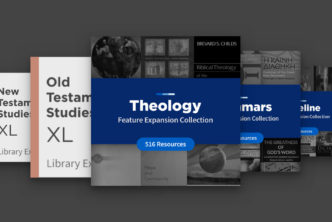It can be fun to flip through an old magazine and laugh at the outdated scientific predictions, bizarre health advice, and absurd trends long forgotten by history.
But it’s a different experience with a magazine like Christianity Today. Open any issue and you’ll find in-depth articles based on biblical truth and a Christian worldview by many of the greatest Christian preachers, thinkers, and leaders of the past 60 years. Their writings in CT have become classics and the wisdom contained within—timeless.
Take the following excerpt from the March 1995 article “Culture War Casualties” by John D. Woodbridge, a professor at Trinity Evangelical Divinity School. His keen understanding of the culture war of the ’90s gives us great insight into the current culture war and divineness in America, making it as applicable today as it was when it was written:
Historians and sociologists have spilled an enormous amount of ink seeking to explain how we have arrived at this point in American life. A number emphasize the spectacular rise of “secularism” to challenge the concept of a ‘Christian America.’ Secularism’s appearance, which they date from the Age of Enlightenment in the eighteenth century, served as a precondition for the conflicts that have emerged over values in this country. They claim the Founding Fathers stipulated that the public square should be empty of religious values due to the Constitution’s guarantees regarding the separation of church and state. According to this interpretation, the Founding Fathers assured secularism’s dominant role in the public square.
But recent research reveals that this historical reconstruction underestimates religion’s strength in the eighteenth century. Moreover, as professors Stephen Carter and Garrett Sheldon have demonstrated, it shelters a misconstrued reading of the Founding Fathers’ intentions.
Our conflicts are, in fact, rooted in multiple sources. One more proximate cause fostering differing views of the world and ethics was the influence of radical forms of the higher criticism of the Bible. Against the intentions of some late nineteenth-century practitioners, this criticism eventually subverted a belief in the authority of Scripture for numerous intellectual elites. In consequence, the Bible lost its role as a compass for their ethical and moral decision making, whereas it retained this role for millions of other Americans.
Moreover, in our own day, despite the continued profession by a large percentage of America’s clergy and parishioners that they believe in the ‘truthfulness’ of Scripture defined in various ways, many in practice look selectively at Judeo-Christian ethics as the standard for making life’s ethical choices. George Gallup, Jr. calls this Americans’ ‘ethics gap.’ In an independent spirit, they fashion their own versions of Judaism and Christianity. This affects many believers, even those who still claim the Bible as their infallible authority. Pollster George Barna has discovered that evangelicals do not live much differently from other Americans with regard to ethical and lifestyle choices.
Nearly 15 years ago, social analyst Daniel Yankelovich warned that a radical ‘duty-to-self’ strain of ethics had begun to sweep like a huge wave through the American middle class. This ethic of human autonomy mandated that we should seek ‘self-fulfillment’ at any cost.
In the 1990s, the ‘duty-to-self’ surge continues to advance across a large front. A swatch of Americans make daily decisions without reference to Judeo-Christian values, or to concepts of ‘virtue’ as described, for example, in Aristotle’s Nichomachean Ethics. Life’s choices are often dictated by raw egoism, crass pragmatism, and untamed passions. Civility, rational discourse, generosity, character, and sexual restraint all can be quickly washed away in this societal sea change in values.
Even professing Christians feel the undertow of this powerful wave of ‘human autonomy’ ethics. We may sincerely profess orthodox doctrine yet find that our primary interests revolve around ourselves rather than the neighbors we are called to love or the God we are commanded to honor. We may bemoan a moral decline in the country. Our actual concern, if the truth be known, is not to see a vital Christianity flourish, but rather to secure a more orderly and less violent society in which to live out comfortable and self-satisfied lives.
So ‘duty to self’ ethics may be a contributing factor giving impetus to culture-war rhetoric and action. When people, religious and irreligious, place themselves at the center of the moral universe, it is easy to understand that they exhibit explosive reactions to anyone who criticizes or ‘crosses’ them. The idea of talking things out and trying to understand another person’s point of view in a civil fashion becomes foreign. The ‘disagreeing other’ automatically becomes ‘the enemy’ and thus can be depersonalized with a slur.
***
Don’t miss out on great articles like this one from Christianity Today that will add a wealth of Christian voices, theological viewpoints, and spiritual wisdom to your Logos library.
Get the most complete digital archive of CT available—pre-order now!




